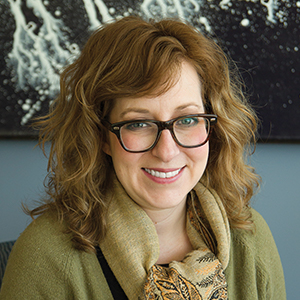More MOSAIC scholars
The American Society for Biochemistry and Molecular Biology welcomes five new scholars to the society’s inaugural cohort for the Maximizing Opportunities for Scientific and Academic Independent Careers, or MOSAIC, program.
In August 2020, the society received a cooperative agreement with the National Institutes of Health’s National Institute of General Medical Sciences to develop and execute a program that will support postdoctoral fellows and new investigators from diverse backgrounds embarking on careers at research-intensive institutions. (Read about the $1.27 million award here.)
In February and April, the society welcomed seven MOSAIC participants. (Learn about them here.) The five participants below complete the cohort.
Kirsten Block, the ASBMB’s director of education, professional development and outreach, is coordinating the program. “We are thrilled to welcome our newest MOSAIC scholars and fill out our first-year cohort,” she said. “As we embark on the second year of this program, it will be exciting to watch these incredible scientists grow professionally as they tap into a full suite of ASBMB resources, programs, expert coaching and a community of practice embedded in the MOSAIC program.”
Junior Arturo Gonzales–Arevalo
Junior Arturo Gonzales–Arevalo is a research associate in the lab of Thomas Reiner at the Memorial Sloan Kettering Cancer Center, where he is using fluorescent and radioactive synthetic probes to image the peripheral nervous system and cancer.
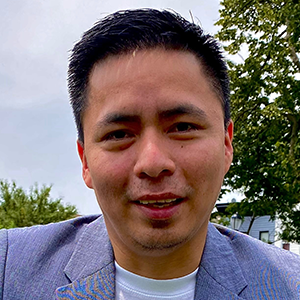
Gonzales–Arevalo was born in Iquitos, Peru, and grew up in the neighborhood of Bushwick in the Brooklyn borough of New York City. He began his college education at Queensborough Community College and went on to earn his bachelor’s degree in biochemistry from Hunter College of the City University of New York. He then earned a Ph.D. in chemistry at the Graduate Center of CUNY.
Gonzales–Arevalo is co-founder of the company Rinclo, which produces dye for chelations and fluorescence imaging. Earlier this year, he was one of 30 early-career scientists recognized as “Ones to Watch” by the Society of Nuclear Medicine and Molecular Imaging.
“This (MOSAIC) grant offers a fantastic opportunity to interface with other talented researchers who are similarly motivated to support the growth of underrepresented populations in the biomedical fields,” Gonzales–Arevalo said. “The award is an equalizer of merit that will provide me the chance to start my autonomous research program, boost a bio-natural laboratory, and allow me to support minority students on their way to becoming minority scholars.”
Gonzales–Arevalo’s research project is titled “Development of multimodal agents from natural spider peptides for prostate cancer via sodium-channel NaV1.7.”
Alfa Herrera
Alfa Herrera is a postdoctoral researcher in the lab of Karla Satchell at Northwestern University. She is studying Vibrio vulnificus, a bacterium present in marine environments that can cause life-threatening infection.
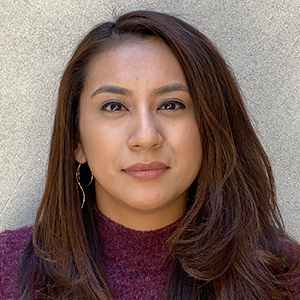
Herrera was raised in Rock Island, Illinois, and earned her bachelor’s degree in cellular and molecular biology from the University of Illinois at Urbana–Champaign. During her undergraduate years, she worked in the microbiology lab of Rachel Whitaker. She then earned her Ph.D. in microbiology and immunology at the University of Iowa.
“I am excited to join the community of MOSAIC scholars and to receive the mentoring and training provided through the program to become a better scientist and an independent researcher,” Herrera said. “I look forward to working with scientists from a wide variety of backgrounds and applying the skills I will learn and my experiences to serve as a mentor for future scientists, in particular the underrepresented, to promote inclusion and equality in science.”
Herrera’s research project is titled “Small host GTPases: Direct targets of Vibrio vulnificus MARTX toxin effectors.”
Cassandra Hayne
Cassandra Hayne is a postdoctoral fellow at the National Institute of Environmental Health Sciences in North Carolina. She is studying RNA processing factors linked to rare neurodevelopmental and neurodegenerative diseases.
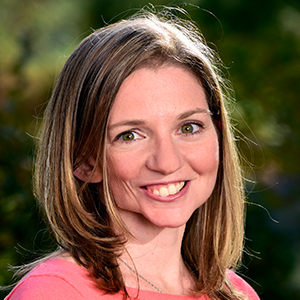
Hayne grew up in the Midwest and had a rare cancer as a child. Her oncologist later learned of her interest in science and invited her to work in her lab when she was old enough — and Hayne did just that during a summer of high school. She went on to earn two bachelor’s degrees, one in biology and one in biochemistry, from the University of Northern Iowa and a Ph.D. in biochemistry at the University of North Carolina at Chapel Hill. She is a mentor for underrepresented scientists and active in various public outreach activities.
“I am so humbled and excited to get to be a part of the ASBMB MOSAIC cohort. I am particularly looking forward to building a scientific community and networking with other MOSAIC scholars as well as members of the ASBMB community,” she said. “I look forward to growing through this career transition and as I establish my own position with the help of the professional-development activities provided through the ASBMB program.”
Hayne’s project is titled “Structural and functional characterization of pontocerebellar hypoplasia associated nucleases.”
Marco Messina
Marco Messina is a postdoctoral fellow in the lab of Chris Chang at the University of California, Berkeley. He is developing molecular probes for the activity-based sensing of reactive oxygen species and small molecules involved in biological signaling and oxidative stress.
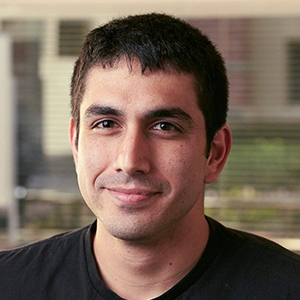
A native of Corpus Christi, Texas, Messina earned his bachelor’s degree in chemistry from Texas A&M University-Corpus Christi. He then earned his Ph.D. in organic chemistry at the University of California, Los Angeles, where he held officer positions at multiple organizations dedicated to increasing diversity in STEM. He remains a member of the Científico Latino Mentorship Program.
“I am thrilled to be joining a talented cohort of researchers in the MOSAIC program. I look forward to expanding my network within the program and ASBMB and to take advantage of the ample career-development opportunities offered,” Messina said. “I am excited to continue mentorship efforts and to develop programs to promote diversity within STEM as I transition into my independent career.”
Messina’s research project is titled “An activity-based biomolecule labeling platform for the imaging of cells and tissues under oxidative stress.”
Iris Nira Smith
Iris Nira Smith is a postdoctoral fellow in the lab of Charis Eng at the Genomic Medicine Institute at the Cleveland Clinic in Ohio. She is studying the structure–function mechanism of germline mutations in the tumor suppressor PTEN, which lead to outcomes including cancers, autism and sometimes both.
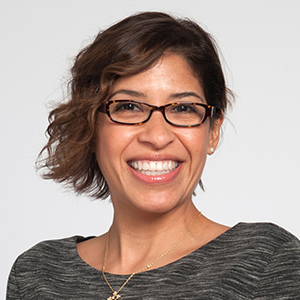
The Houston native’s own diagnosis of endometriosis at age 19 prompted Smith to pursue a life in science. She earned her bachelor’s and Ph.D. in biochemistry at the University of Houston, where she studied PTEN somatic mutations leading to endometriosis and cancer. Smith has led STEM outreach and mentoring programs including Cleveland Clinic’s partnership with the Cuyahoga County Division of Children and Family Services for children and teens.
“I am so honored to be a part of such a wonderful program, and I look forward to engaging with my fellow MOSAIC scholars,” Smith said. “The NIH MOSAIC award will be invaluable to my career development, not only giving me the foundation to transition into a successful independent investigator but also the knowledge and skills to enrich the scientific education of students from underrepresented backgrounds and inspire them to pursue careers in STEM-related research.”
Smith’s research project is titled “Unraveling the PTEN interactome: Modeling structural and functional dynamic network architecture for therapeutic modulation in cancer and autism.”
Enjoy reading ASBMB Today?
Become a member to receive the print edition four times a year and the digital edition monthly.
Learn moreFeatured jobs
from the ASBMB career center
Get the latest from ASBMB Today
Enter your email address, and we’ll send you a weekly email with recent articles, interviews and more.
Latest in People
People highlights or most popular articles

Building a career in nutrition across continents
Driven by past women in science, Kazi Sarjana Safain left Bangladesh and pursued a scientific career in the U.S.

Kiessling wins glycobiology award
She was honored by the Society for Glycobiology for her work on protein–glycan interactions.

2026 ASBMB election results
Meet the new Council members and Nominating Committee member.

Simcox wins SACNAS mentorship award
She was recognized for her sustained excellence in mentorship and was honored at SACNAS’ 2025 National Conference.

From humble beginnings to unlocking lysosomal secrets
Monther Abu–Remaileh will receive the ASBMB’s 2026 Walter A. Shaw Young Investigator Award in Lipid Research at the ASBMB Annual Meeting, March 7-10 in Washington, D.C.

Chemistry meets biology to thwart parasites
Margaret Phillips will receive the Alice and C. C. Wang Award in Molecular Parasitology at the ASBMB Annual Meeting, March 7-10 in Washington, D.C.

